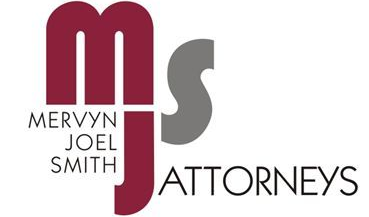Two parts of your land asset whole
Because we refer to property-related loans as “mortgage bonds”, folk often assume that home loans and mortgage bonds are one and the same. They are not!
“One is the security given to the bank under the mortgage bond agreement and the other is the actual loan obtained. To complicate matters further, they don’t have to be of the same amount and it doesn’t always have to be a mortgage bond that secures the home loan,” explains Property Factor’s Tess Rodrigues.
The mortgage bond is a legal agreement whereby you, the owner of the property, hand over your rights over the property to the bank in order to secure a loan. This can be either a home loan, an overdraft or a personal loan. You can choose the amount for which you want the mortgage bond agreement to be, as long as it is higher than the loan it secures. Furthermore, you don’t have to “qualify” for and your property doesn’t have to have the value of the amount stipulated in your mortgage bond agreement.
The problem arises when a borrower signs a mortgage bond agreement for an amount higher than the actual loan granted. This is standard practice when a client purchases vacant land with the intention of erecting a building on the property or alternatively when a borrower wants access to the future capital growth on a property without having to incur the costs of registering another mortgage bond.
borrowers often mistake the amount signed for under a mortgage bond agreement with the loan amount granted. In a January 2009 media report, a property owner felt “done in” by bankers who had him sign a mortgage bond for R3.4 million when he had purchased vacant land for R1.4 million with the intention of erecting an R2 million home on the property. When he needed access to these funds, they were not available, as they were never granted to him in the first place. When he then applied for these funds, he didn’t qualify for the additional R2 million loan.
It is important for consumers to understand that whenever they choose to register a higher mortgage bond, the amount is not necessarily available to them. Should they require a further loan, they will need to apply for it and there are no guarantees that they will qualify for the loan or that the bank will find sufficient value in the property.
One should weigh the future cost saving in registering a higher bond with the associated risk. By registering a higher bond, you are giving the bank permission to claim any outstanding debt you may have at that particular bank, whether it is the home loan and / or an overdraft facility in the name of a third party that you stood surety for.
1. Variable home loan
This type of home loan is very popular among new homeowners. The interest rate is attached to the prime loan rate, so if the prime loan base rate goes down by 1%, the interest rate follows, but unfortunately, it also works the other way around.
2. Capped-rate home loan
The criteria is very strict and hard to meet, it’s seldom available with a maximum rate built into the loan. When interest rates go down, you enjoy the benefits, and when interest rates go up, you are not affected since you are only required to pay the agreed capped rate.
3. First-time buyers home loan
This is an opportunity for people who would like to invest in a home but may not have the required amount to deposit on it. Banks are now open to lending more than 100% of the purchase price, which includes registration and transfer costs. This works best for people who have never applied for a home loan or never owned any property.
4. Fixed-rate home loan
This option has a fixed interest rate for a certain period, which covers one or two years. The fixed rate would always be higher than the base home rate but will protect you from increasing rates. This will free your mind from potential increasing interest rates since you already know what your repayments are. While this may be good, it will also be a disadvantage once the interest rate drops, since you will still be paying the same interest rate.
5. Reducing or step-down home loan
Here there will be a guaranteed small interest rate decrease every six months for an agreed period. Even when the home loan interest rate rises or falls, the gradual reduction would still apply.
The banks will limit their risk by demanding ample security for the loan they are willing to grant you. It is your responsibility to fully comprehend what you’re signing for and limit your risk in providing such securities. A mortgage bond is no exception…
Article courtesy of property24
